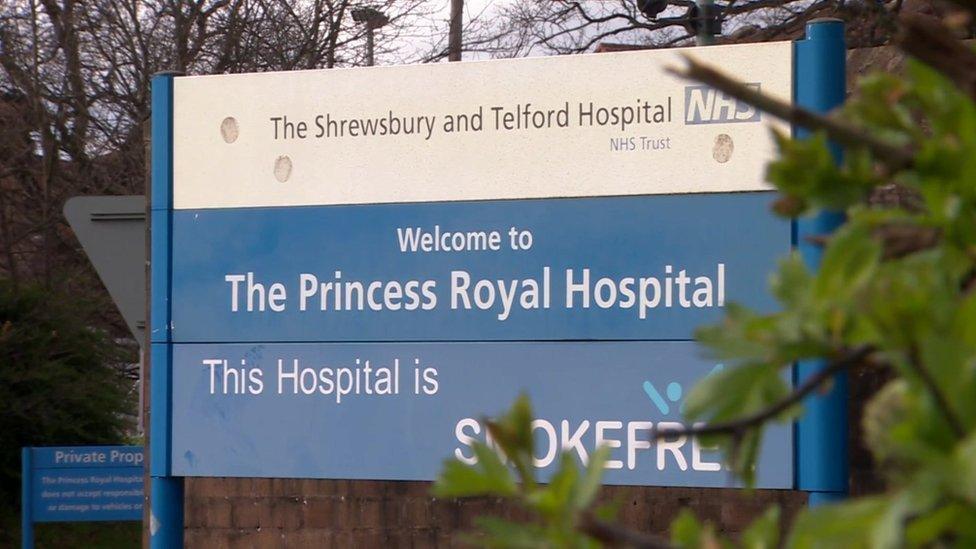Telford hospital 'inadequate' in children's mental health care
- Published
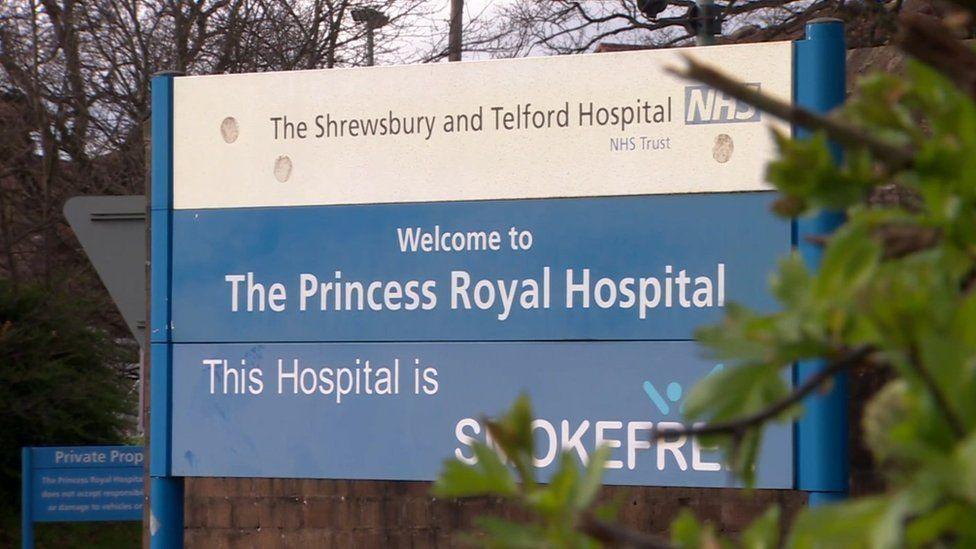
Staff told inspectors they had seen an increase in the number of young people with "significant mental health issues" and learning disabilities in the past year
A child was twice given double the "safe" dose of a rapid tranquilizer at a hospital run by a troubled NHS trust.
The child was put at "significant risk of harm" at Telford's Princess Royal Hospital, said inspectors.
Rating children's services inadequate, they said Shrewsbury and Telford Hospital NHS Trust (SaTH) must halt seeing under 18s for acute mental health needs.
The trust, in special measures, was working to "urgently address concerns".
The Care Quality Commission (CQC) carried out a targeted inspection on 24 February prompted by "concerning information" about treatment at the service run by SaTH.
The trust is currently at the centre of the largest ever inquiry into NHS maternity care.
Staff told inspectors they had seen an increase in the number of young people with "significant mental health issues" and learning disabilities over the past year.
But the services, which were rated as "requiring improvement" in November 2019, were deemed "inadequate" in four of five areas tested - for being safe, effective, responsive and well-led.
Mothers blamed
The health watchdog for England said it has taken "urgent action" to protect youngsters at the hospital.
The trust has been in special measures since November 2018, the same year an investigation was launched into its maternity services led by senior midwife Donna Ockenden.
Last year, the Ockenden review's interim report found mothers were blamed for their babies' deaths and a large number of women died in labour.
In the latest inspection, children were found to "not receive adequate risk assessments on admission". In one example, the risks a ward posed to someone admitted after attempting to harm themselves were not mitigated.
Inspectors also said staff did not follow best practice in anticipating and de-escalating challenging behaviour.
One child's records showed staff "generally relied" on rapid tranquilisation - which they received 27 times during their admission.
They found staff were not always appropriately trained in restraint, with some security staff involved in interventions not having "any restraint training at all".
Ted Baker, chief inspector of hospitals, said "all possible steps" should be taken to ensure hospitals were safe for vulnerable young people and concerns that "urgently need addressing" were found.
It must immediately review records of all young patients admitted with mental health needs; monitor staff compliance with safeguarding procedures and give the CQC weekly reports on its actions over patient safety.
Louise Barnett, the trust's chief executive, said it was "accelerating" the actions needed to improve care, including by ensuring all children had risk assessments and care plans, more staff training and, with partners, appointing a consultant psychiatrist "to provide ongoing leadership and support".

Follow BBC West Midlands on Facebook, external, Twitter, external and Instagram, external. Send your story ideas to: newsonline.westmidlands@bbc.co.uk , external
Related topics
- Published14 April 2021
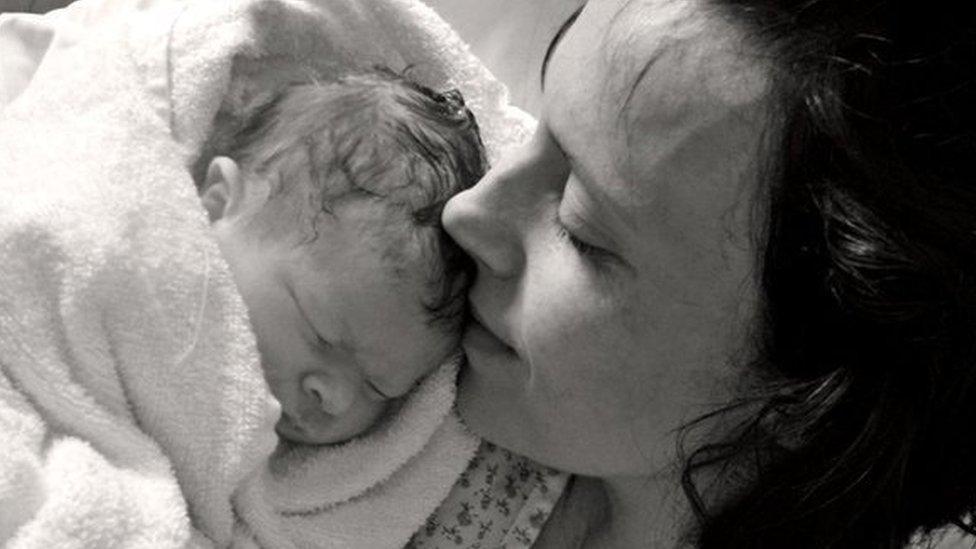
- Published25 March 2021
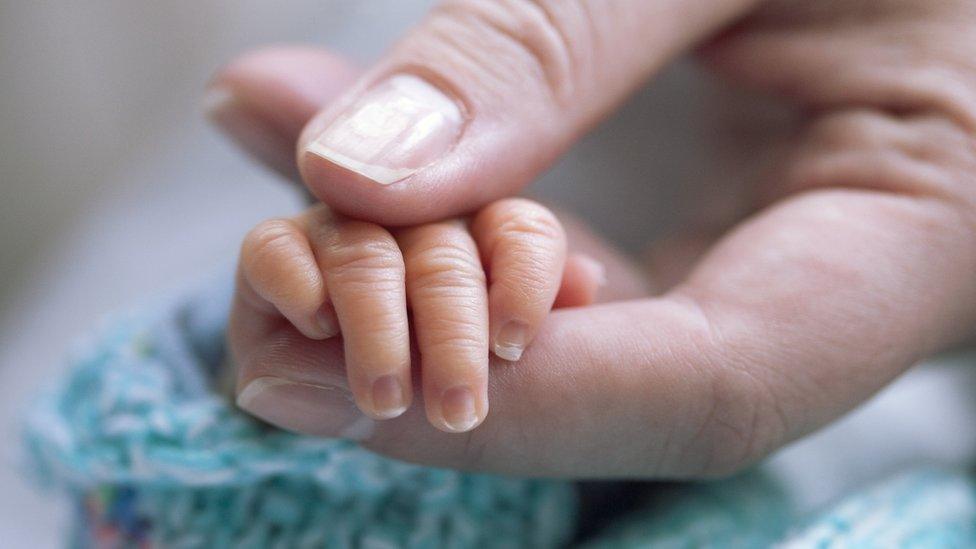
- Published3 March 2021
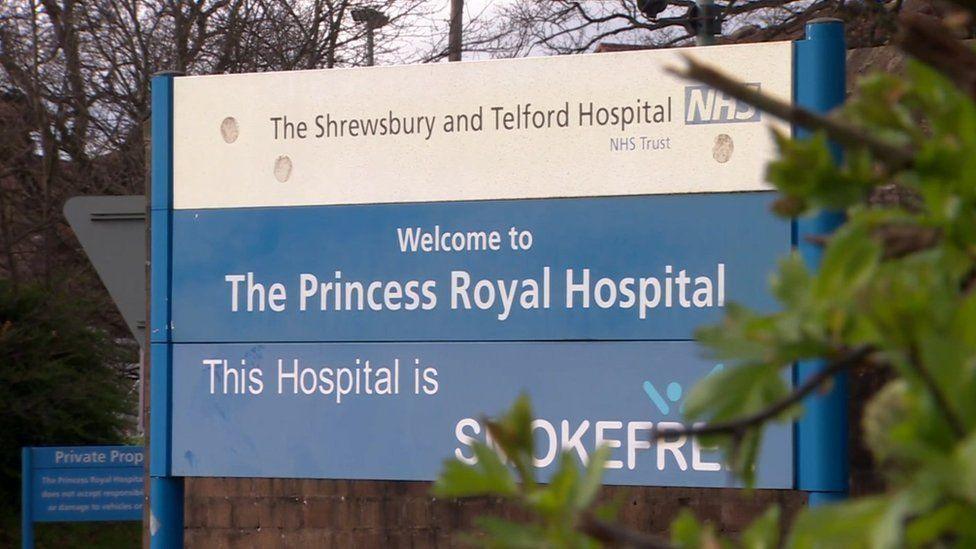
- Published5 December 2020
